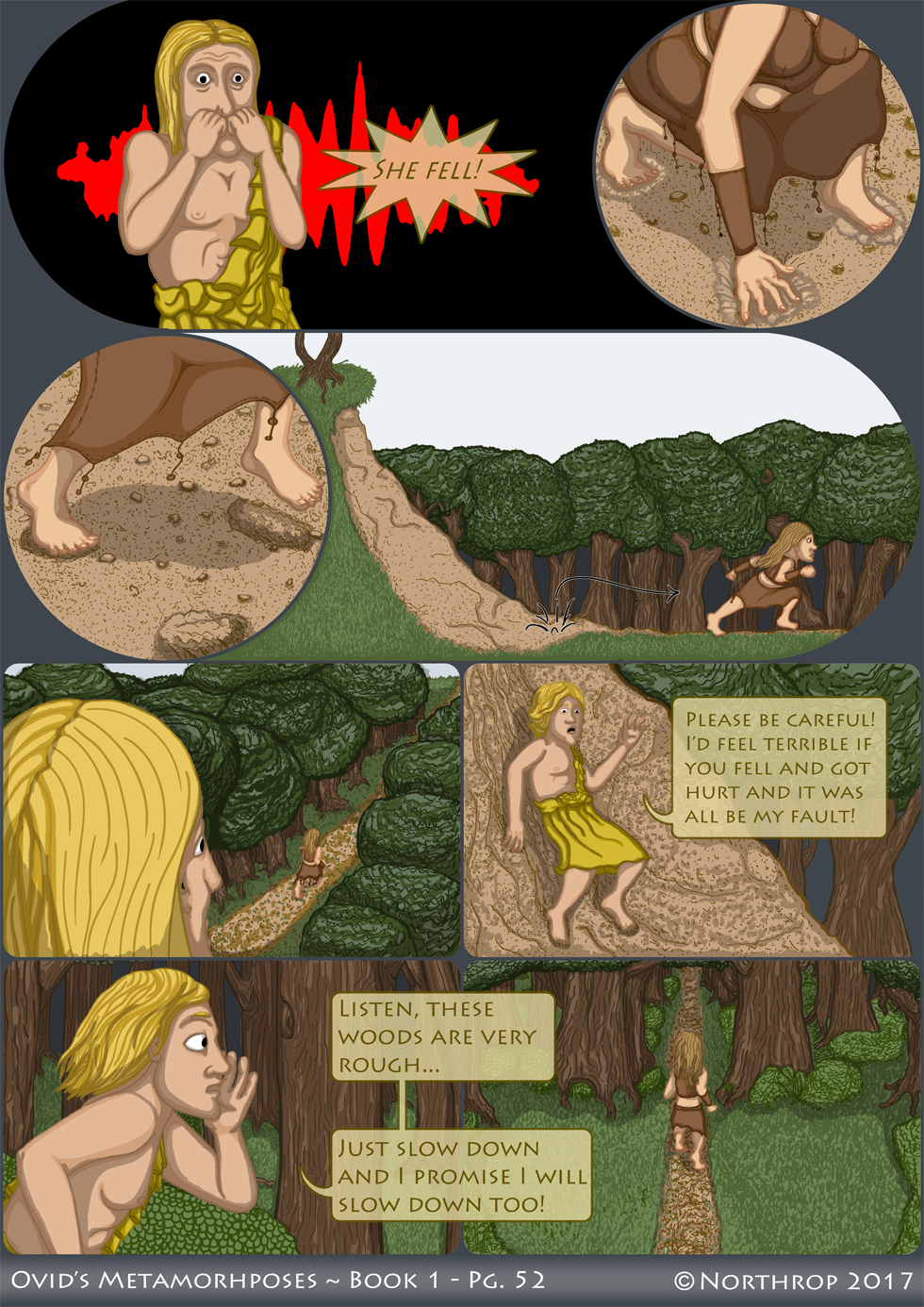Met. 1.508-11: Fears of Falling
“me miserum, ne prona cadas indignave laedi
crura notent sentes, et sim tibi causa doloris!
aspera qua properas loca sunt. moderatius, oro,
curre fugamque inhibe; moderatius insequar ipse.”
“Oh miserable me! I’m afraid you’ll fall or that
the brambles will mar your blameless legs, and I’ll be the cause of your pain!
The places you are running through are rough. Please,
run slower and check your flight; I will follow slower myself.
Met. 1.508-11
Finally – we have a new comic! I’m trying to get back to the regular update schedule, but it is proving difficult in this end-of-PhD transition period. I have submitted my corrections now, so hopefully I will be returning to regular update schedule soon…
Apollo is presumably quite duplicitous here. His whole “you run slower and I’ll run slower too” schtick is so transparently disingenious that even Kellyanne Conway would be rolling her eyes at this point. I view Apollo’s dishonesty as part of a series of ironic reversals for the god. See, Apollo is the god of prophecy, meaning he should be a reliable source of information. The fact that he is telling a patent lie undermines his authority as a god of truth. Back on line 491, Ovid hinted that this change is a direct result of Cupid’s arrows: “and because he wishes, he hopes and his oracles fail him” (“quodque cupit sperat suaque illum oracula fallunt”). This loss of prophetic truth comes along with a loss of moderation, which should be another stalwart trait of Apollo’s. These ironies and reversals of the god’s expected character traits underscore Ovid’s point that Cupid is the more powerful god. Love is able to take the son of Jupiter and twist him around, until he is a shadow of his normal self.
Daphne, for her part, is smart enough not to listen to Apollo. Perhaps she doesn’t even hear him – Ovid does not really make that clear. At any rate, despite what Apollo says, Daphne just keeps on running… somehow, though, I don’t believe she’ll end up featuring in the next Nike ad.

Hi Charlotte,
I’d like to send you an invite to be involved in an event, and wondered if there were an email address I could reach you on?
Thanks!
Hi Lorna,
Sure, my email is charlie@metamorphoses-comic.com 🙂
Cheers!
Hi Charlie,
Surprise! I have been following your Metamorphoses and wrote before but
not sure you got it….mihi gratissimum est…..how goes the thesis?
So glad to see you here, Tom! This comic wouldn’t be possible without you 😉